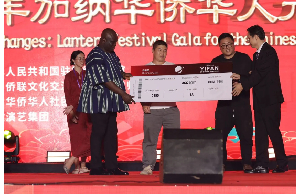President Nana Addo Dankwa Akufo-Addo has said that the government will continue to invest in Ghana’s health sector.
He said the administration will also continue to recruit more health professionals, in addition to the one hundred thousand recruited in his first term for the health facilities.
Delivering his first state of the nation address in his second term on Tuesday March 9, he said “Electronic medical records system (E-Health) deployment is currently underway, following its implementation in key health facilities like Korle-Bu, KomfoAnokye, Ho, Tamale and Cape Coast Teaching Hospitals, and several district hospitals in the Central Region. Upper East, Upper West, and Bono Regional Hospitals will go live on the e-health platform in five (5) days.
“When it was needed most, at the height of the pandemic, the ingenuity and creativity of the Ghanaian shone through, which caught the attention of the world. When PPEs were being sold on the world market at extortionist prices, largely because demand outstripped supply, we began producing them in Ghana. Scrubs, medical gowns, sanitisers, masks, and gloves, all of these essential to the fight against COVID-19, were produced in Ghana. In total, fourteen million, six hundred thousand pieces of personal protective equipment have, so far, been produced domestically for health workers, students, teaching and non-teaching staff of tertiary and secondary educational institutions.
“We are determined to make our own things, and the Akufo-Addo government will continue with the agenda of rapid industrialisation, with the aim of transforming the structure of the Ghanaian economy from one dependent on the production and export of raw materials to a valueadded, industrialised economy. Under the “One-District-One-Factory” (1D1F) initiative, two hundred and thirty-two (232) projects are at various stages of implementation. These include seventy-six (76) operating as 1D1F companies, whilst one hundred and twelve (112), including five (5) medium size agro-processing factories, and sixty-three (63) Common User Facilities are under construction.
“The Ghana Integrated Aluminium Development Corporation (GIADEC) has made good progress on the bauxite exploitation programme that will drive our industrial transformation agenda. We are in the final stage of an open and transparent investor engagement process, and are in negotiations to select strategic investors to partner GIADEC for the bauxite mining and alumina refinery projects. The selected partners will be announced imminently. Similarly, the Ghana Integrated Iron and Steel Development Corporation (GIISDEC) has been set up, and has begun its work in earnest.
“We have succeeded in attracting major global vehicle manufacturers, under the automotive development policy, to set up in Ghana. So far, Volkswagen has produced one thousand, one hundred and sixty-seven (1,167) vehicles, SinoTruk two hundred and seventy-six (276) vehicles, and our own Kantanka has produced four hundred (400) vehicles. The Japanese conglomerate, Nissan, has also started the assembly of vehicles in the country.”
He added “our nation’s food resilience has been severely tested over the past year. The closure of borders, in the midst of the pandemic, meant that we have had to depend largely on food we produced. We have fared well under the circumstances, largely as a result of the bold policies implemented by Government since 2017, such as the programme for Planting for Food and Jobs, Rearing for Food and Jobs, the 1-Village-1- Dam initiative, 1-District-1-Warehouse policy, establishment of greenhouse villages, revitalisation of the cocoa rehabilitation programme, and the reactivation of our aquaculture industry. I am happy to inform the House that, during this period of the pandemic, we have experienced no food shortages in the country.
“There have been increases in maize and rice yields by one hundred and ten percent (110%) and forty-eight percent (48%) respectively. We have, for the first time in a long while, become a net exporter of food, as opposed to the days of importation of tomatoes and plantain. Indeed, in 2019, we exported some one hundred and forty thousand metric tons (140,000 MT) to our neighbours. We are determined to take full advantage of African Continental Free Trade Area (AfCFTA) to produce more in Ghana, to sell more to Africa and beyond, as we move Ghana Beyond Aid.”
Health News of Tuesday, 9 March 2021
Source: 3news.com
Electronic medical records system deployment underway in Ghana – Akufo-Addo
Entertainment












